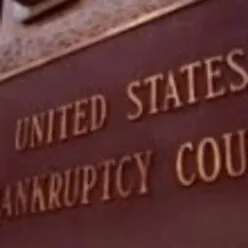(a) In this section—
(1) “adequate information” means information of a kind, and in sufficient detail, as far as is reasonably practicable in light of the nature and history of the debtor and the condition of the debtor’s books and records, including a discussion of the potential material Federal tax consequences of the plan to the debtor, any successor to the debtor, and a hypothetical investor typical of the holders of claims or interests in the case, that would enable such a hypothetical investor of the relevant class to make an informed judgment about the plan, but adequate information need not include such information about any other possible or proposed plan and in determining whether a disclosure statement provides adequate information, the court shall consider the complexity of the case, the benefit of additional information to creditors and other parties in interest, and the cost of providing additional information; and
(2) “investor typical of holders of claims or interests of the relevant class” means investor having—
(A) a claim or interest of the relevant class;
(B) such a relationship with the debtor as the holders of other claims or interests of such class generally have; and
(C) such ability to obtain such information from sources other than the disclosure required by this section as holders of claims or interests in such class generally have.
(b) An acceptance or rejection of a plan may not be solicited after the commencement of the case under this title from a holder of a claim or interest with respect to such claim or interest, unless, at the time of or before such solicitation, there is transmitted to such holder the plan or a summary of the plan, and a written disclosure statement approved, after notice and a hearing, by the court as containing adequate information. The court may approve a disclosure statement without a valuation of the debtor or an appraisal of the debtor’s assets.
(c) The same disclosure statement shall be transmitted to each holder of a claim or interest of a particular class, but there may be transmitted different disclosure statements, differing in amount, detail, or kind of information, as between classes.
(d) Whether a disclosure statement required under subsection (b) of this section contains adequate information is not governed by any otherwise applicable nonbankruptcy law, rule, or regulation, but an agency or official whose duty is to administer or enforce such a law, rule, or regulation may be heard on the issue of whether a disclosure statement contains adequate information. Such an agency or official may not appeal from, or otherwise seek review of, an order approving a disclosure statement.
(e) A person that solicits acceptance or rejection of a plan, in good faith and in compliance with the applicable provisions of this title, or that participates, in good faith and in compliance with the applicable provisions of this title, in the offer, issuance, sale, or purchase of a security, offered or sold under the plan, of the debtor, of an affiliate participating in a joint plan with the debtor, or of a newly organized successor to the debtor under the plan, is not liable, on account of such solicitation or participation, for violation of any applicable law, rule, or regulation governing solicitation of acceptance or rejection of a plan or the offer, issuance, sale, or purchase of securities.
(f) Notwithstanding subsection (b), in a small business case—
(1) the court may determine that the plan itself provides adequate information and that a separate disclosure statement is not necessary;
(2) the court may approve a disclosure statement submitted on standard forms approved by the court or adopted under section 2075 of title 28; and
(3)
(A) the court may conditionally approve a disclosure statement subject to final approval after notice and a hearing;
(B) acceptances and rejections of a plan may be solicited based on a conditionally approved disclosure statement if the debtor provides adequate information to each holder of a claim or interest that is solicited, but a conditionally approved disclosure statement shall be mailed not later than 25 days before the date of the hearing on confirmation of the plan; and
(C) the hearing on the disclosure statement may be combined with the hearing on confirmation of a plan.
(g) Notwithstanding subsection (b), an acceptance or rejection of the plan may be solicited from a holder of a claim or interest if such solicitation complies with applicable nonbankruptcy law and if such holder was solicited before the commencement of the case in a manner complying with applicable nonbankruptcy law.
